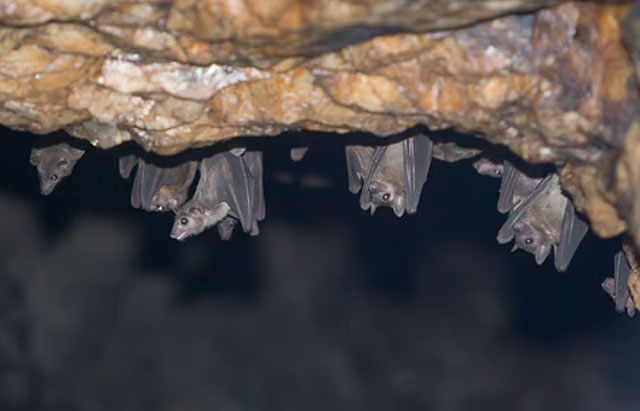Daijiworld Media Network – Tokyo
Tokyo, Oct 31: An international team of scientists from Japan, the US, Australia, and Belgium has discovered a new Covid-19-like virus in moustached bats in Brazil, sparking fresh fears of a potential zoonotic spillover and another disease outbreak.
The virus, named BRZ batCoV, was identified by researchers from the Universities of Osaka and Sydney in the Pteronotus parnellii species — a small insect-eating bat known for its tiny facial hair tufts and widespread presence across South America.

According to the study, published on preprint site BioRxiv, the newly identified virus is phylogenetically distinct from known betacoronaviruses, the same group that includes SARS-CoV-2 (Covid-19) and MERS-CoV.
“We identified a full-length genome of a novel bat CoV (BRZ batCoV) from a Pteronotus parnellii bat sampled in Brazil that is phylogenetically distinct from known betacoronaviruses,” the researchers wrote. The team’s analysis suggests that the virus may represent a new subgenus within the Betacoronavirus family.
One of the most concerning findings is that the spike protein of BRZ batCoV possesses a functional furin cleavage site — a key feature that affects infectivity, host range, and cross-species transmission. The study noted that its sequence motif (RDAR) differs from that of SARS-CoV-2 (RRAR) by just one amino acid, raising questions about its potential for human adaptation.
The furin cleavage site has been linked to the increased transmissibility of viruses such as avian influenza, Ebola, and SARS-CoV-2, all of which have caused significant outbreaks or pandemics.
While the newly discovered virus is not the same as Covid-19, it appears to be more closely related to MERS-CoV, also known as camel flu — a disease that spreads less easily but has a fatality rate of around 35%.
Experts have warned that although there is no evidence yet that BRZ batCoV infects humans, its presence indicates ongoing viral evolution among bat populations. “The discovery provides important insights into the evolutionary potential and zoonotic risk of BRZ batCoV,” the researchers said.
The findings underscore the critical role of bats as natural reservoirs of viruses capable of genetic innovations that could lead to future zoonotic diseases, reinforcing the need for global vigilance and monitoring of emerging bat-borne pathogens.